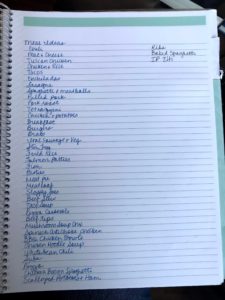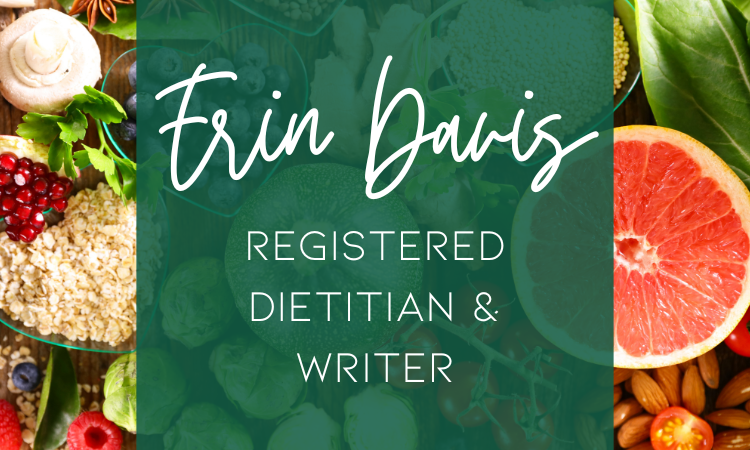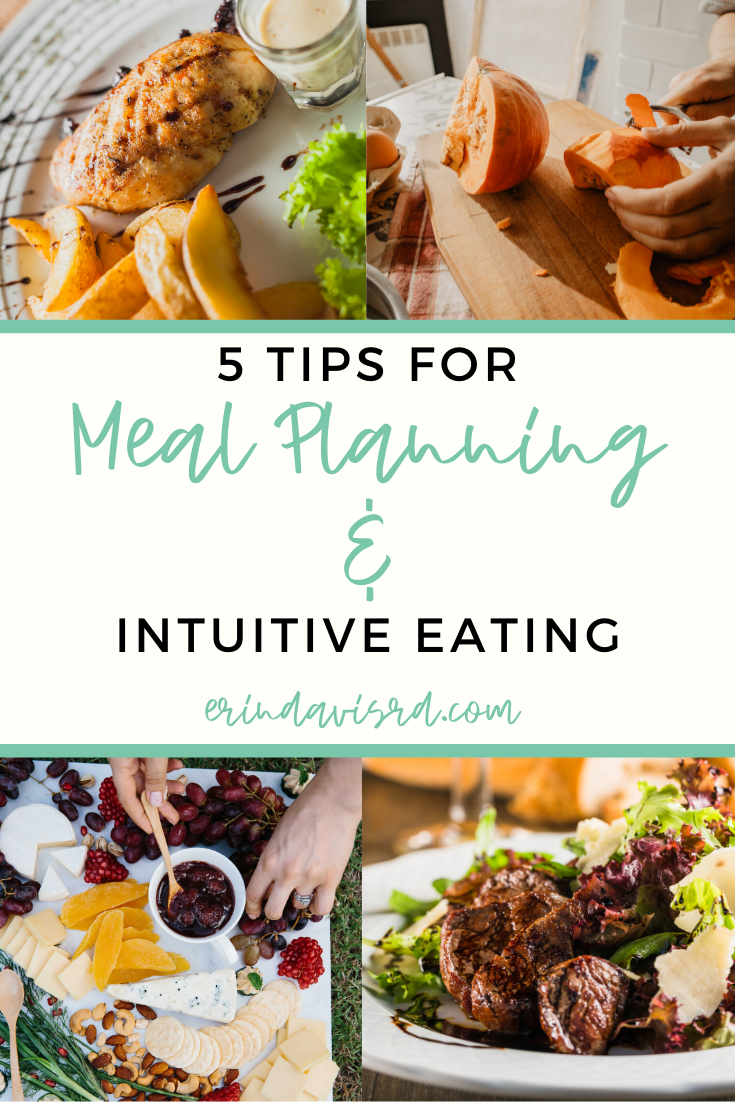Do you often find yourself scrambling to make a decent dinner? We just wrapped up our spring sports season, and meals were a struggle. One area of my life that I’m always trying to improve is my meal planning.
Today I am going to share how I do meal planning for intuitive eating. When you throw away the dieting, it doesn’t mean you have to quit planning your meals!
Planning always makes for a better week at our house. It is one less thing I need to worry about during the day. I know what I’m going to make for dinner (which is half the battle), I have the ingredients I need, all I have to do is cook.
Benefits of Meal Planning for Intuitive Eating
There are definite benefits to meal planning when you are using the principles of intuitive eating. We all need to eat, right? So, whether you have a family you are feeding, or just yourself, it is helpful to have a plan. When we leave food decisions up to the last minute, when our biological hunger is at its peak, we don’t always choose foods that make our bodies feel good.
Think about the last time you didn’t have a plan for supper. Maybe you were busy with an activity and all of the sudden, hunger hits you! Everybody is reaching for chips, cookies, and whatever else is quick and easy while you are scraping together a meal. If you didn’t have time to plan, you are lucky if you can even get a decent meal on the table.
Planning meals ensures that you will have a balanced meal most days of the week. It also saves money on groceries. When we go to the store with a list based on our meal plan, we aren’t just buying random ingredients and hoping for the best. Meal planning may also provide variety to your meals. You can involve your family so that everyone’s preferences are included.
Tips and Tools for Meal Planning
1. Pick a Planning Day
I usually grocery shop on Fridays. At the beginning of the week, I start my planning. I like to use this notepad from Amazon. It sticks to my fridge so I can jot down ideas and items I need to buy.
2. Get Ideas
I love to use Pinterest for meal planning and recipes. Cookbooks can be a good source of inspiration as well. In my planner notes page, I have listed all of the meals that I know how to make.

3. Look for deals
Food can be a major expense. Before I go shopping, I’ll check out the local store ads online, and I’ll go on my Ibotta app to see what cash back items I may be needing. Emphasis on “needing”. It is easy to just get things I don’t need because they are on sale. I really try to stick to the items that would have been on my list anyway.
If chicken is on sale, I’ll try to come up with some meals that use chicken, rather than another meat. Additionally, I try to buy in bulk packages, as the unit price is normally cheaper.
4. Be flexible
I try to make my meal plan so that I can swap days. There are times when things come up. I may not have time to make the meatloaf and mashed potatoes, so maybe I can switch for a meal that takes less prep time. It isn’t a rigid plan that can’t be changed.
5. Involve your family
This is especially important if you have picky eaters. Let them decide what they’d like for one meal. Challenge them to look through a cookbook and find something new they’d like to try. Meal planning and preparation are life skills that can be taught by you while you are doing it yourself. Demonstrating the need for a plan, nourishing foods, and variety is a great way to raise a healthy eater.
Meal planning for intuitive eating can be fun. After all, you are allowing yourself to enjoy ALL foods. You will be widening the variety of foods that you and your family eats. Contact me if you need help with meal planning or your intuitive eating journey.
Some of the links are affiliate links, which means I may make a small commission if you purchase, with no expense to you. Thank you for supporting me.
About the author
Erin is a registered dietitian and diabetes educator with almost 20 years of experience. She specializes in weight-inclusive diabetes care and prevention, intuitive eating, fitness, and women’s health. She works as a consultant and writer in the health and wellness space. Erin is passionate about empowering people to manage their own health and to have peace with food.



